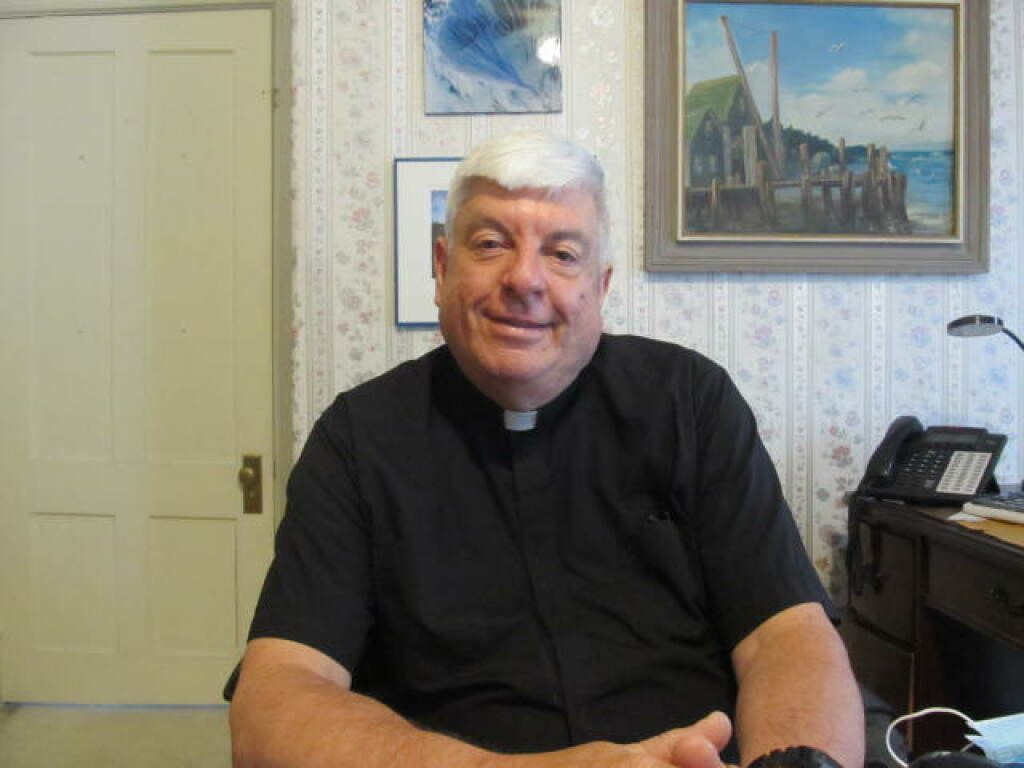 We are never alone
!
We are never alone
!
John Donne, a seventeenth century poet, wrote a story about one man’s search for God.
--------------------------------------------------------
The man is told that God lives atop a high mountain at the end of the earth. After a long journey, the man arrives at the mountain and begins his climb.
About the same time that the man begins his ascent, God muses, “What can I do to show my people how much I love them?” God gets the idea to descend among his people as one of them.
As so as the man is ascending one side of the mountain, God is descending the other side. However, they don’t see each other because they are on opposite sides of the mountain. When the man reaches the mountaintop, he is heartbroken to find no one there. He thinks, “God doesn’t live here after all.” He even begins to think that God doesn’t exist, saying, “If God doesn’t live here, where does God live?”
Donne concludes, “God doesn’t dwell on mountaintops, or in the midst of the desert, or at the ends of the earth. God dwells with men and women. God lives in the towns and cities of the world.
---------------------------------------
We have just celebrated Christmas, the Feast that focuses on the Incarnation, God being with us, God becoming one of us. Today, our focus shifts some thirty years into Jesus’ future, and we are invited to reflect on the Baptism of the Lord.
Right from the start, those who reported Jesus’ baptism appear to be embarrassed by it. John the Baptist is out in the desert, calling people to conversion and offering a baptism of repentance. Now the question is, if Jesus is sinless, why does he need a baptism of repentance? According to the gospel of Matthew, even John the Baptist recognizes this fact, and says, “I should be baptized by you, and yet you are coming to me?”
So why does Jesus get baptized? I would suggest that it follows from the meaning of Christmas…God becoming one of us and one with us. While Jesus, technically speaking, doesn’t need baptism, he chooses to do so as an act of solidarity with the human race. He wants to accompany us as we make our way through life.
Jesus’ baptism also points to the future of his own journey. In Mark’s gospel when James and John ask that they sit at Jesus’ right and left when he enters his kingdom, Jesus responds, “You do not know what you are asking. Can you drink the cup I shall drink or be baptized in the same bath of pain as I?” Jesus is obviously pointing to the crucifixion as an act of total love, as a gift of self down to the last ounce of blood. Here’s his solidarity with the human race: there is no greater love than to lay down one’s life for one’s friends. Jesus is baptized into the pain of this world, so that he might transform it, defeat it, and lead the way to resurrection and an eternity with God.
It is helpful to note that in the early Church baptisms were done at Easter, often by immersion in a river or a pool of water. The idea was that, as one was taken down into the water, it was a way of joining Jesus in death, going down into the tomb, so as to then rise from the water, rise from the tomb, to life eternal. So our baptism was not just a formal ceremony. Baptism was the beginning of our life with Jesus, and ultimately, our dying and rising with Jesus. And on the day of our baptism, our God surely repeated the words of today’s gospel: You are my beloved son, my beloved daughter. With you I am well pleased. I love you.
During the stress and strain of the pandemic, and all the other craziness of our world, recalling our baptism is important, hearing God’s reassurances is important. Knowing that we are embraced and infinitely loved changes everything, and enables us to endure whatever comes. According to the insight with which we began, our God came down from the mountain to be with us! And during this Year of the Eucharist, we recall that God didn’t just do it once and for all, so as to be done with it. God continually renews his presence each time we receive the Eucharist; and every time we receive, we are fortified and reassured. We need not fear life. We are ready to face it, for we are never alone.
You might also like
Father's Homilies




